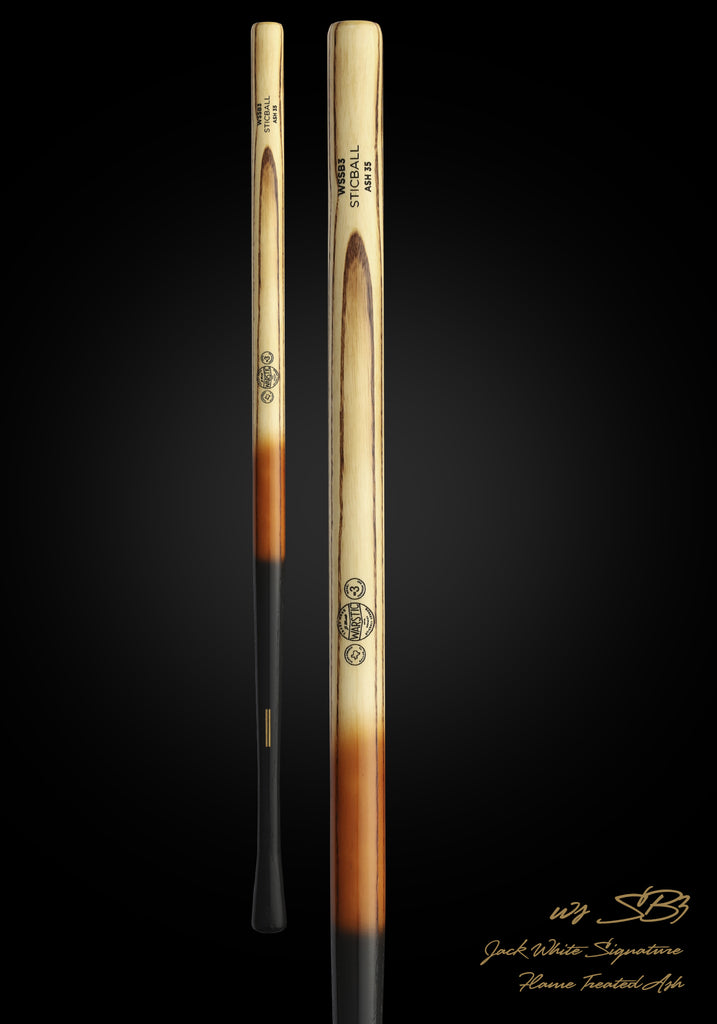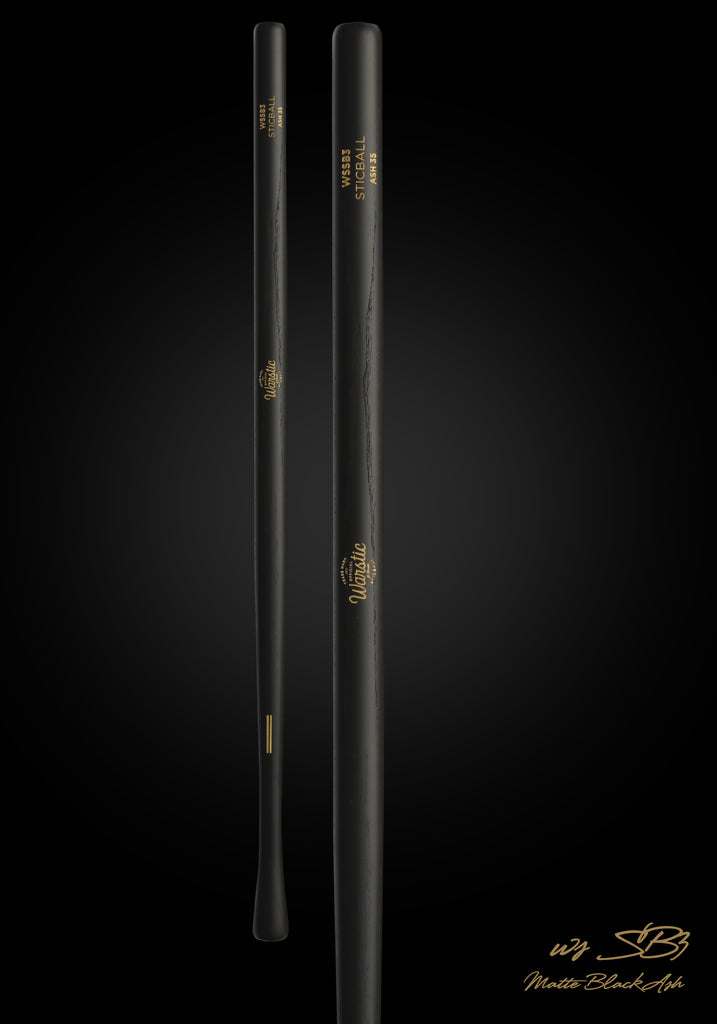
Jack White Sticball Bat Auction & Fundraiser for COVID-19 Relief
Miss out on bidding on the auction, CLICK HERE to purchase one of the remaining pairs of the new Official Warstic Sticball WSSB3 Jack White Bats, one of which will be autographed by Warstic Co-Owner Jack White.
We are auctioned off 50 pairs of the Jack White WSSB3s, with Jack autographing one of the bats in the pair for you to keep as a display bat, with the other bat meant for you to put to use. We’re using the funds raised from this auction to benefit two communities hard-hit by COVID-19, Jack’s hometown of Detroit and Native American communities.
Through Warstic’s American Indian Stic Warrior’s Fund, this auction will benefit the Navajo & Hopi Families COVID-19 Relief Fund, the NB3 Foundation COVID-19 Response Fund, and the United Way for Southeastern Michigan as they work to assist those in need in the Greater Detroit area. We are also assisting Protect the Sacred and Illuminative, in their effort to protect and educate Native Americans in the fight against this virus. These organizations are positioned to take these auction funds and put them to work exactly where they will do the most good.
The backstory... Warstic co-owners Jack White, Ian Kinsler and Ben Jenkins thought up the idea to create sticball bats after being inspired by watching #WarstripeNation improvise at home with their training. The result is a new model, the WSSB3 Sticball Bats, which we hope brings something fun to stay at home life for the whole family.
Jack and Ben exercised their design chops on the look leveraging classic sunburst wood stain style and some vintage Warstic logos to create and brother/sister looking set of bats. Kins focused on performance as always insisting we must go with a broom handle size stic but pro style it up on the knob! The result is quite a stunning new product.
Click HERE to bid on one of these 50 pairs of Sticball bats.
About the Navajo & Hopi Families COVID-19 Relief Fund
The Navajo Nation has the 3rd highest COVID-19 infection rate, following New York and New Jersey (via NPR).
The Navajo Nation and Hopi Reservation are extreme food deserts with only 13 grocery stores on Navajo to serve some 180,000 people and only 3 small grocery marts on Hopi to serve some 3,000 people. These communities also have high numbers of elderly, diabetic, asthmatic, and cancer-afflicted (i.e., high risk) individuals. These communities could be devastated by coronavirus and COVID-19. We want to help these individuals, especially the elderly and high risk individuals, and families with children, to gain access to the food and water (1/3 of Navajo residents do not have running water) and other essential items they will need to weather this pandemic, such as food, PPE, and diapers. The need is so great. Navajo regularly has roughly 50% unemployment (most of the residents are elderly or children; those who can work often leave the Nation to find jobs), and Hopi has roughly 60% unemployment.
The goal of the fund is to help the elderly (especially those raising their grandchildren), the immunocompromised and mobility impaired, single parents, and struggling families by helping them buy groceries, water, health supplies, and necessary items so they (and their vulnerable communities) can be protected from exposure to the virus by engaging volunteers to make these purchases and deliver them to a safe transfer location for our beneficiaries. They are working to stop the spread of COVID-19 on reservations by engaging volunteers to sew masks for medical workers and first responders on Navajo and Hopi.
The team is led by enrolled Navajo and Hopi tribal members, and are working to form a nonprofit to manage this work and expend these funds. The funds from this campaign will be used to make direct purchases, or reimbursement of purchases by volunteers, of bulk food and medical items, and other purchases made on behalf of our beneficiaries, such as water, food from supermarkets, PPE, and other items necessary to keep our beneficiaries socially distanced.
About the NB3 Foundation and their COVID-19 Relief Fund
The Notah Begay III (NB3) Foundation is a national, award-winning Native-led nonprofit leading the way to improve Native American children’s health. Each day, thousands of Native youth wake up facing significant health challenges and barriers to living full lives. The good news, is that most are preventable and together we are changing this reality. The NB3 Foundation was founded in 2005 by Notah Begay III (Diné/Pueblos of San Felipe and Isleta), a four-time PGA Tour winner. He is currently an analyst for NBC Sports and the Golf Channel.
In response to the COVID-19 crisis, the NB3 Foundation has created the NB3 Foundation COVID-19 Response Fund. This donor driven fund will support two primary areas within Native American communities:
1. Access to nutritional food and clean water,
2. Access to education opportunities and youth development.
Over the next several weeks, the NB3 COVID-19 Response Fund will directly support families and children living within the Navajo Nation, New Mexico and tribes in South Dakota. The key is “directly.” The funds will not go to overhead, bureaucracies or middlemen. They will identify on-the-ground needs and directly support these areas. Every cent given will help families in need.
About the United Way for Southeastern Michigan COVID-19 Community Response Fund
United Way for Southeastern Michigan and their partners are committed to ensuring that the region’s most vulnerable families have the support they need to weather the short- and long-term impacts of the coronavirus outbreak.
Hosted by United Way in partnership with corporate, nonprofit and foundation entities, and individual donors, this fund will allows them to rapidly deploy resources to community-based organizations that are offering emergency relief to families and individuals in need. Click here to view a list of partners who have received grants through this fund.
Through the fund, United Way and their partners will be best able to assist vulnerable populations, such as seniors, children and low-income families. The fund will be used for a multitude of efforts to help with recovery, including:
- Food distribution to students affected by school closures and other vulnerable populations that are isolated or lack access.
- Availability of shelter beds for people experiencing homelessness who do not have the resources needed to stay safe.
- Operational funding gaps for health and human service agencies.
- Loss of income and access to services for vulnerable populations.
- Supporting college students who face barriers as they complete their education.







